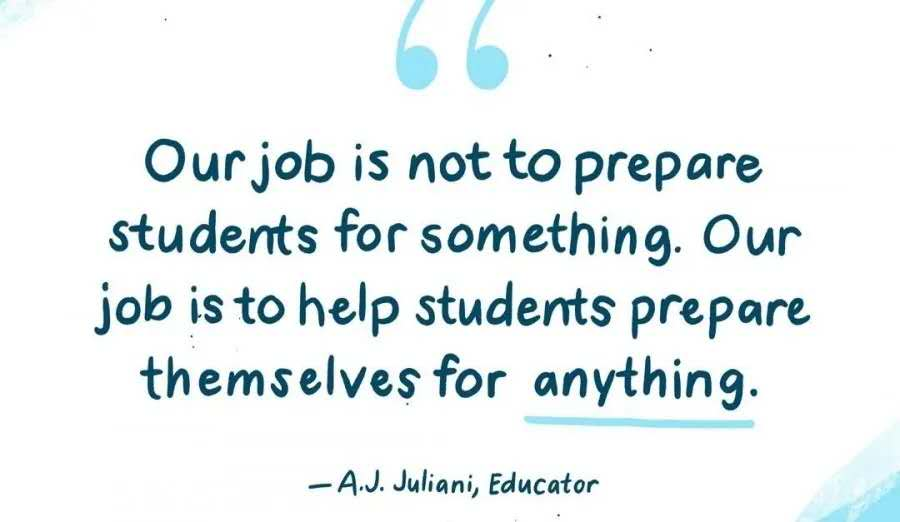In order to contain the epidemic caused by Covid-19, schools across Shanghai postponed their reopening dates for the
spring semester. This preventive measure of self-quarantine has confined us mostly to our homes, causing all manner of
difficulties and frustrations. Many things that we took for granted are no longer easily accessible.
During this period of combating the
epidemic, how can pupils take advantage of this extended winter break to strengthen their independent learning while enriching their household lives?
Below are some suggestions we hope will shed some light on what may help pupils during this time.
1.Suggestions on independent learning

Figure out a teaching schedule, preparing content and the timetable in
advance. Preview everything before the class
to outline the key knowledge points as well as any potential areas of
confusion. Try to find the answers in the online lessons.
- Stick to reviewing your work after the online classes. Finishing assignments is an
effective way to check whether you have a good command of what you have learned. Besides, it is also critical to
follow up on learning feedback from teachers and strive to achieve a closed-loop mode of learning and acquisition
for every subject.
- Regularly communicate with teachers about your thoughts and creative
ideas. During this independent learning period, opportunities for one-on-one discussions with teachers will be more
common and they provide a good opportunity to practise your organisation and self-expression skills, which in turn
will help build your confidence and interest in your studies.
- Develop your independent thinking abilities. While pupils cannot have face-to-face
conversations with their peers in the same space, the current situation does enable pupils to explore learning
independently and gives them more chances to think independently. By using accessible extracurricular learning
resources, they can conduct in-depth thinking regarding any topics that they are curious about.
- Thanks to the convenience of communication technology, you
can share your learning experiences with your learning pals via online networks and help
each other to improve through mutual encouragement.
- Life at home can easily become busy or even tense during this period of extended online learning. Under the
current
circumstances, pupils should continue to take personal viral preventive measures and keep an eye on the updates of the epidemic in a rational and reasonable manner.
- The outbreak of the COVID-19 epidemic was understandably scary and unnerving. Even after getting past the initial
shock, reading the latest epidemic news can easily put us back into a state of anxiety. Remember that these are
normal psychological reactions
that we should learn to accept and not worry about too much. However, if
this kind of anxiety is amplified or lasts too long, it may have an adverse impact on our studies and daily lives.
Therefore, we should take the initiative to overcome our fears and direct our attention to more positive things,
such as talking with friends about your feelings, taking regular exercise, eating a balanced diet and so on. In
conclusion, maintaining a positive attitude and staying resilient is the best defense against the psychological
effects of the epidemic.
Remember that independent learning is not a journey that you need to take entirely on your own, as your family members, teachers and schoolmates are all still available when you need them.
2.
Preparation for reopening the school
In the course of fighting the epidemic, we realised that throughout the evolutionary history of human beings, we have
been constantly struggling with diseases and coexisting with them, which underlines the vital importance of harmonious
coexistence between human and nature.
If we can go back to school in the near future, this will indicate that the epidemic is well under control. For the time
being, we must obey instructions given out by school while making preparations for its reopening:
- Adjust your biological clock and follow a regular schedule. It is best to make a timetable similar to routines at
school with set times to get up, learn, exercise and sleep. This will make life easier during these exceptional
circumstances and will help us to prepare for school’s reopening.
- Check whether all your assignments are finished to a high standard that reflects your true capabilities.
- Prepare stationery and, if necessary, buy any new devices to give yourself the best start to the new semester.
- Work out a learning plan for the new semester and set appropriate learning goals.
- Exercise regularly and make sure you get enough sleep to strengthen your physique and immune system.
3.
Suggestions for parents
During this period, under the premise of pupils’ health and safety, home-based independent learning currently takes the
place of classroom-based lecturing.
How can parents assist pupils to accept this new learning style and develop their self-discipline awareness? Here are
some tips for you:
- Create a dedicated quiet room or space for your children’s study. Remove any items
that may distract them. Make sure to prepare everything needed for learning in advance: resources, stationery,
computer etc.

- Work out a weekly learning plan which sets out daily work for all
subjects. Reasonably arrange study sessions for each subject and try to abide by the plan.
- Set realistic session times for children and control their screen time, which is good discipline for maintaining
their concentration and
eyesight. 20 to 30 minutes’ sessions before taking a break is our recommendation for lower grade pupils and 30 to 60 minutes for pupils in higher grades.
- If you find that your children can hardly focus during their independent learning time, you can try
to interact with them and make learning more engaging: raise questions, finish a
task together, liven up activities in ways you think your children will enjoy.
- If your children feel tired, let them have a rest and do some relaxing activities.
Another effective technique is to shorten each session time and extend break time, which may help them to adjust to
this new learning setup.
- Always offer support and encouragement. If children exceed the prescribed time to finish
their learning or have limited understanding of the content, you should always try to guide and support them with
patience.
- Reward your child. Independent learning may be a challenge for them. When they achieve the set
goals in different subjects, rewarding their perseverance will enhance their sense of achievement, which in turn
will encourage them to stick to their goals in the future.
- Encourage your children to contact their teachers if they have any questions regarding to their studies. Parents
are also welcome to ask for suggestions from teachers.
Independent learning will benefit our pupils despite its challenges and potential obstacles. Parents’ assistance lets
them get involved in their children’s learning, understand their intrinsic requirements and help them to solve problems
they encounter in their studies.
We hope that the trust and cooperation between their school and home will help pupils to make full use of this time and
stop them feeling anxious or frustrated by the effects of the epidemic and its subsequent impact.
Our efforts to protect pupils physically and mentally will allow them to grow and develop to their fullest, enabling
them to embrace the next part of their learning journey with greater confidence and capability.




